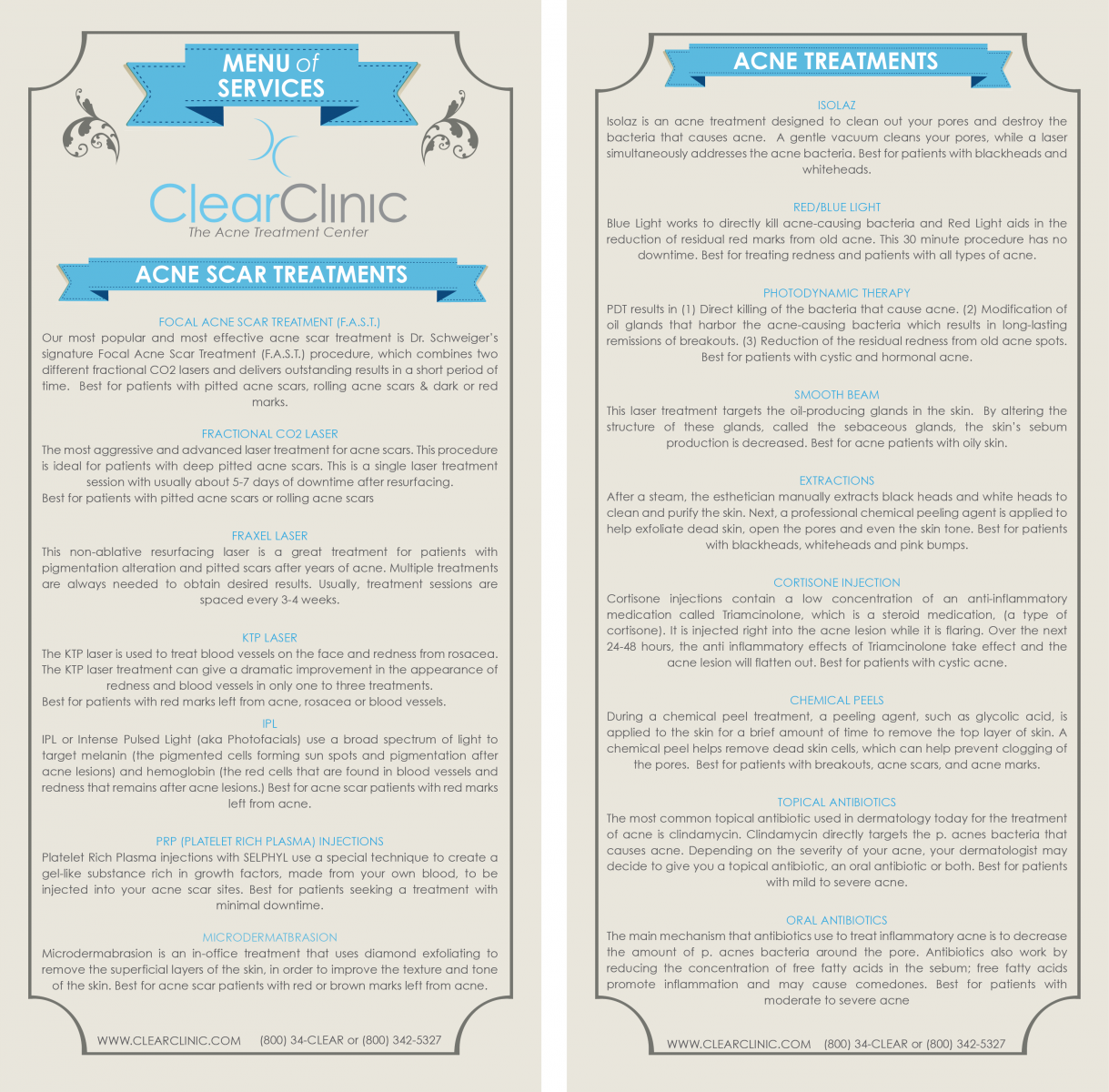Acne and rosacea can often look quite similar. It is no surprise that the conditions are difficult for people to distinguish, since they can both appear as reddish bumps on the face. Although these conditions can sometimes appear together, they are distinctly different skin conditions and should be treated differently, in order to get the best treatment. Inflammatory acne (ie. pimples) is the type of acne that mimics rosacea the most. This type of acne is an inflammatory reaction of the skin to the acne-causing p. acnes bacteria. Anti-bacterial medications and retinoid creams tend to work the best for treating inflammatory acne.
Rosacea is a separate condition from inflammatory acne, and should be treated as such. Rosacea may appear either as generalized redness with blood vessels (called erythrotelangiectatic rosacea) or as acne-like bumps on the face. Rosacea that presents as pinkish bumps on the face is often referred to as acne rosacea. The specific causes of rosacea are not known, but we do know that it is an inflammatory reaction of the skin (not due to p. acnes bacteria or clogged pores, as is the case with acne.) While acne can show up on many parts of the body, rosacea is primarily seen on the face (and sometimes on the chest.)
Since rosacea is a distinct condition, it also has its own unique treatments. There are a variety of ways to address rosacea, depending on the type of rosacea and its extent. Your dermatologist will recommend the best treatment for your rosacea. The most commonly used topical medications for the treatment of rosacea include azeleic acid (Finacea), metronidazole (Metrogel), and sodium sulfacetamide/sulfur combination facial cleansers (such as Sumadan wash.) Since rosacea is a chronic condition, meaning that it can be managed but not ‘cured’, most patients continue using these topical medications for many years. There is one oral medication approved for treating rosacea; this pill is called Oracea. Oracea contains a very low dose of an antibiotic, too low to have antibacterial properties, but with anti-inflammatory properties just strong enough to treat rosacea. The anti-inflammatory effect is delivered throughout the day and helps to control rosacea better than topical medications alone. Oracea has been studied and approved for long-term use in the treatment of rosacea, though your dermatologist will help you to determine the best course of treatment for your rosacea.
Rosacea can also be treated with laser treatments. Vascular lasers, such as the KTP laser, cause the collapse of superficial vessels in the skin, which decreases the appearance of generalized redness and capillaries on the skin from rosacea.
While new acne research suggests that dairy products and foods with a high glycemic index may contribute to the causes of acne, we have known for many years that certain foods can cause rosacea to flare. Every person is different and may experience different ‘triggers,’ but the most common triggers for a rosacea flare are spicy foods and alcohol. By avoiding the triggers specific to their skin, many people can avoid rosacea flares.

